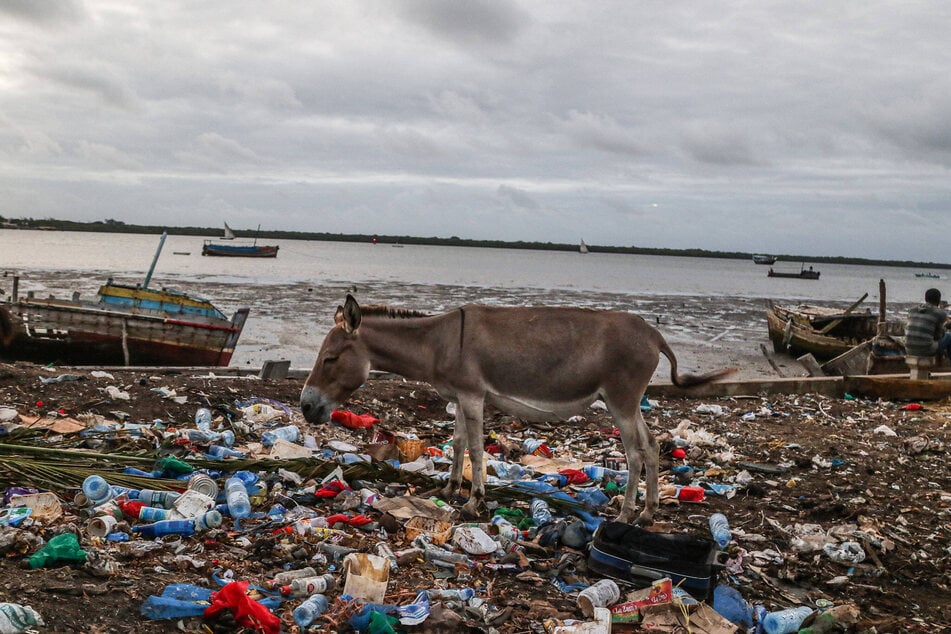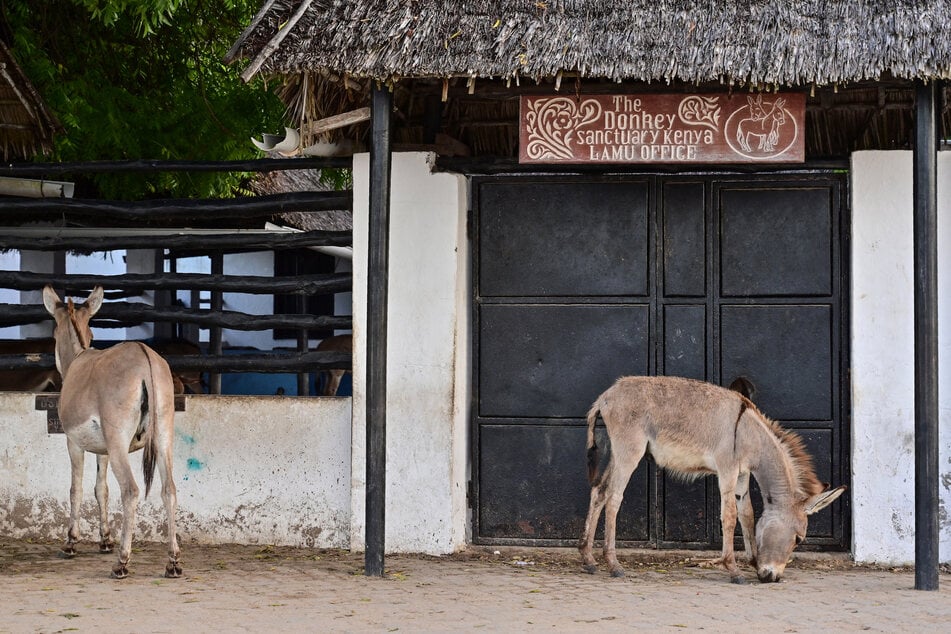Kenyan donkeys dying with staggering amounts of plastic in their stomachs
Lamu Island, Kenya - An investigation has revealed the devastating effects of plastic pollution on animals in Kenya, with dead donkeys found to have stunning amounts of trash in their stomachs.

While it has long been known that plastic can be dangerous to marine animals, the impact of plastic on land-based creatures has largely been under-researched.
Now, a new study undertaken by scientists from the University of Portsmouth in conjunction with the Donkey Sanctuary has revealed a terrible truth about the extent to which human waste can be harmful to land animals.
The study was triggered by a discovery on Lamu Island in Kenya, where a local abattoir found nearly 80 pounds of plastic waste in the stomach of a slaughtered cow.
Scientists grew concerned for the island's donkey population following the discovery. It was theorized that with very little grass on the island, grazing animals were turning to the piles of plastic waste that dotted the roadside.
"The problem of plastic pollution is escalating, and we need to understand its impact on the animals that are integral to communities in the Global South," said Dr. Leanne Proops, the study's project lead.
Donkeys are crucial for the lives of many of the island's inhabitants. Due to the fact that many cannot afford feed for their animals, they let them loose to graze in nearby fields and forests.
Tragically, those donkeys then go on to eat a lot of plastic, often leading to horrific deaths due to malnutrition and other detrimental health impacts.
"The picture is complex – livestock owners often cannot afford to feed their animals and through necessity let their animals loose to graze," said Dr Emily Haddy, who will lead community focus groups on the issue.
Study to determine true extent of plastic-related donkey deaths

The study won't be released in full until later in 2024, but researchers have already revealed that at least three donkeys are dying every month from health issues related to eating dumped plastic.
Dr. Sing'Oei is the lead vet at the Donkey Sanctuary and has been collecting such data, which he shared with The Guardian. The problem is that he can only record the cases that get brought to his clinic.
"This is nothing, as just a fraction of colic cases are brought to the clinic. Anecdotally, if you ask any donkey owner in Lamu, they will tell you they have lost a donkey to colic from plastic," said Dr. Sing'Oei.
The "colic cases" Dr. Sing'Oei mentioned refer to a health condition brought on by plastic in the stomach and intestines. It is extremely painful and often fatal.
Dr Sing'Oei explained in a post on the Donkey Sanctuary website: "Nutritional colic in donkeys is usually fatal. We also lose donkeys to poisoning from residual rat poison, which can find its way to the dumpsites after domestic use."
He went on to praise the researchers from the University of Portsmouth, saying, "We are pleased that, with the help of researchers from Portsmouth, we will be able to highlight and address what is fast becoming a crisis."
Cover photo: IMAGO/ZUMA Press Wire

